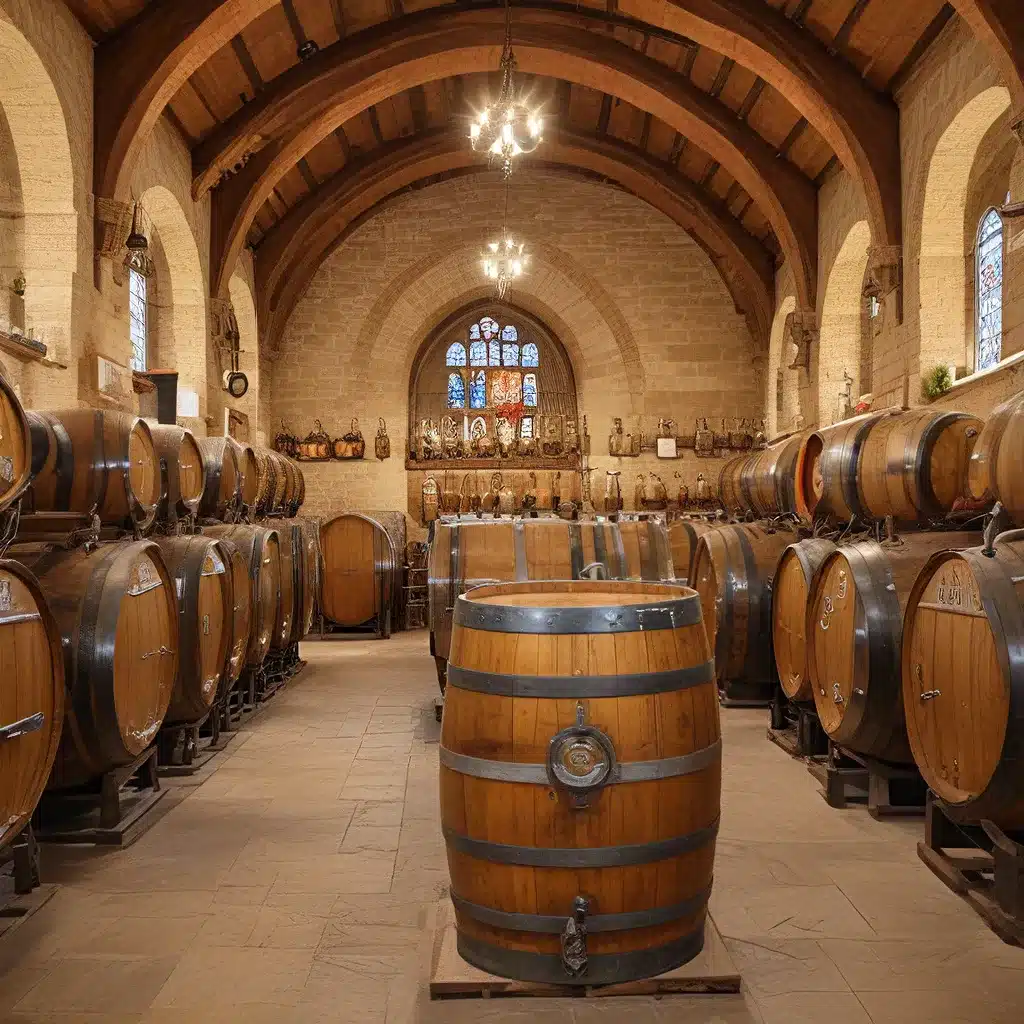
The Monks’ Divine Gift to the World
During a recent trip to Bavaria, I had the privilege of visiting the Weltenburg Abbey, home to the Weltenburger Klosterbrauerei – the oldest monastic brewery in the world. As I sipped on their creamy, nutty brown Dunkel beer in the abbey’s scenic beer garden overlooking the Danube River, I couldn’t help but wonder: what led these monks to become such exquisite brewmasters?
The answer, as it turns out, lies deep within the annals of history. You see, the monks of the Middle Ages didn’t just stumble upon the art of beer-making – they revolutionized it, turning a humble household chore into a true culinary and spiritual pursuit.
The Monastic Brewing Revolution
Let’s travel back in time to about 600 AD. Imagine yourself as a monk, devoted to a life of monastic living, hidden away from the hustle and bustle of medieval temptations. You and your companions diligently follow the Rules of St. Benedict, one of which states that to become a true monk, you must live by the work of your own hands. You must also donate to the poor through the fruits of your labor and provide traveling pilgrims with food and drink.
It didn’t take long for you and your fellow monks to realize that brewing beer could be the perfect solution. After all, in the Middle Ages, beer was the most widely consumed beverage in Europe – much like in the Czech Republic today. It was often safer to drink than water, and even children and the elderly indulged.
The Monks’ Brewing Innovations
But the beer of the time was far from perfect. Women, who were typically responsible for brewing, had limited resources and would throw together whatever leftover ingredients they could find, resulting in a spoiled and poor-quality product. That’s when the Cistercian monks stepped in and changed everything.
The monks attacked their new job with military precision, keeping careful records of their recipes and working tirelessly to improve the quality of their brews. They introduced several revolutionary techniques, including:
- Hops: The monks added wild hops to their beers, which helped balance the sweet flavors of the malt and, more importantly, acted as a natural preservative.
- Sanitation: The monks developed a fastidious level of sanitary practices, ensuring their beer-making process was as clean and consistent as possible.
- Alcohol Levels: The monks discovered that by running water through the mash, they could produce beers with varying alcohol levels – the highest concentration for travelers, the second-best for themselves, and the weakest for the poor and destitute.
- Lagering: The monks are credited with the idea of lagering, or cold-storing beer, which led to the development of crisp, clean-tasting Pilsners.
These innovations not only improved the quality of the monks’ beer but also helped them meet the growing demand for their product. After all, they believed that since they were brewing for God, they needed to make the best possible product – a subpar beer would be a major offense.
The Monastic Brewing Legacy
Fast forward almost 600 years, and the legacy of these monastic brewers lives on. Today, some of the finest beers in the world are still produced by monastic breweries, like the Weltenburg Abbey’s Dunkel that I so thoroughly enjoyed.
But the monks’ influence on beer-making extends far beyond just the quality of the final product. They also discovered that talking about the beer they make can lead to deeper conversations of a spiritual nature with visitors to the monastery – a true match made in heaven.
The Monastic Brewing Legacy Today
While the days of monks being the sole brewers are long gone, their influence can still be seen in the beer-making industry today. Many modern breweries, both large and small, have adopted the monks’ meticulous approach to recipe development, sanitation, and quality control.
Moreover, the idea of self-sufficiency and community-mindedness that drove the monastic brewers has found its way into the ethos of the modern craft beer movement. Microbreweries, much like their monastic predecessors, often see their beer-making as a way to support their local communities and provide a high-quality product that can be enjoyed by all.
So the next time you sip on a deliciously complex, well-balanced craft beer, raise a glass to the pioneering monks who helped pave the way for the thriving beer culture we enjoy today. Their legacy continues to inspire brewers and beer enthusiasts alike, reminding us that the art of beer-making is as much a spiritual pursuit as it is a culinary one.
The Monastic Brewing Journey Continues
As I make my way back from the Weltenburg Abbey, I can’t help but feel a deep appreciation for the monks who have dedicated their lives to perfecting the art of beer-making. Their story is a testament to the power of innovation, dedication, and a profound sense of purpose.
The journey from monasteries to microbreweries is a long and winding one, but the thread that ties it all together is the unwavering commitment to creating something truly special – a beverage that not only nourishes the body but also the soul. And for that, we can all raise a glass and say, “Prost!”

